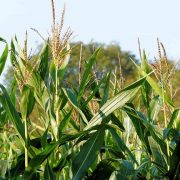EU agri-food exports and imports reached record levels in October 2024
In October 2024, EU agri-food trade reached record levels, with exports totalling €21.7 billion and imports at €16.2 billion. Exports increased by 10% and imports by 19% month-on-month.
Cumulative data from January to October shows a 6% rise in imports and a 3% increase in exports. These are the main findings of the latest monthly agri-food trade report published today by the European Commission.
Exports
EU agri-food exports reached a record €21.7 billion in October 2024, up 10% from the previous month and 8% higher than October 2023. This growth was driven by increased export volumes and sustained high prices since 2022. Cumulative exports for the year reached €197.3 billion, a 3% increase compared to 2023.
The United Kingdom and the United States remained the top destinations for EU agri-food exports between January and October 2024, valued at €44.9 billion and €25.1 billion, respectively. Exports to China declined by €937 million (-8%) due to reduced shipments of cereals, pigmeat, and dairy.
Regarding exported products, coffee, tea, cocoa, and spices saw the largest growth between January and October, increasing by €2.1 billion (+31%), driven by rising cocoa product prices and higher volumes. Olive and olive oil exports rose by €2 billion (+49%) due to sustained high prices, while sugar exports more than doubled in value (+120%). Meanwhile, cereals experienced the largest decline in export value (-€2.1 billion, -17%), primarily due to lower prices.
Imports
EU agri-food imports reached a record €16.2 billion in October 2024, reflecting a 19% month-on-month increase and a 21% rise compared to October 2023. This growth was driven by higher import volumes and prices, approaching 2022 levels. Cumulative imports from January to October totalled €141.1 billion, 6% higher than in 2023.
Imports from Brazil remained the largest at €14.4 billion, despite a 3% decline due to lower oilseed prices and cereals volumes. Meanwhile, imports from Côte d’Ivoire saw the biggest increase (+€2 billion, +60%), mainly driven by rising cocoa prices, while Australia and Russia experienced the largest reductions.
Regarding imported products, coffee, tea, cocoa, and spices rose by €7.1 billion (+41%) due to climbing cocoa and coffee prices. Meanwhile, imports of cereals and oilseeds dropped by €1.8 billion (-18%) and €1.7 billion (-9%), mainly driven by lower prices despite an increase in volumes for oilseeds.
The latest edition of the monthly EU agri-food trade report contains more insights and detailed tables.















